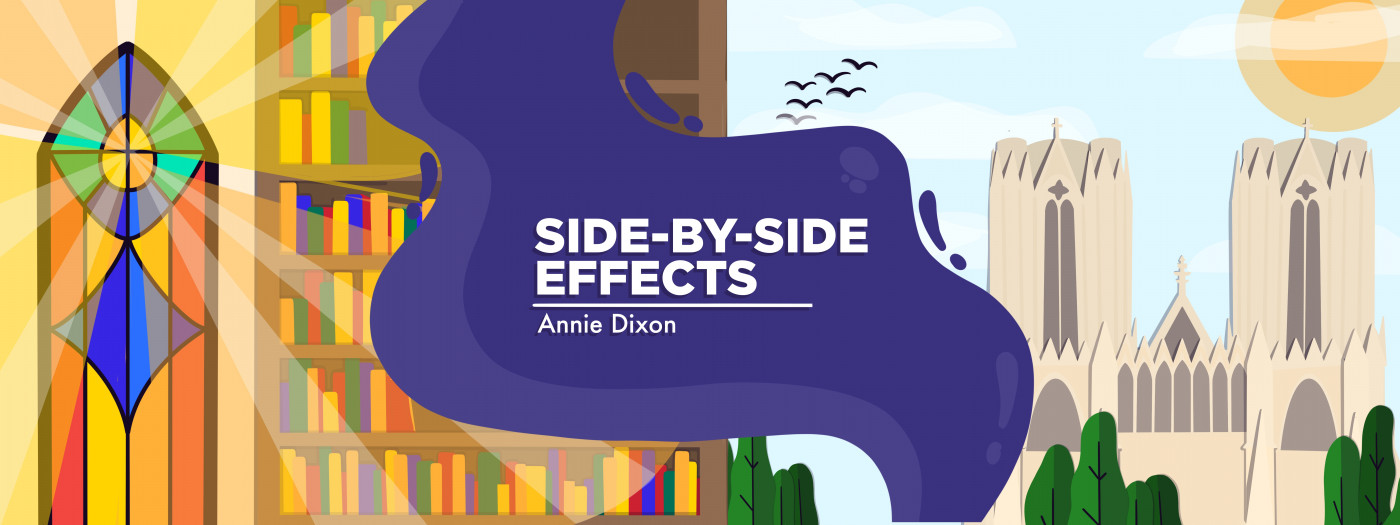A Time for Everything Under Heaven
Written by |

My wise old grandfather used to say, “You’ll know you’re old when your priest and your doctor are younger than you.”
And so it has come to pass. My husband, Ronald, and I noticed it a while ago, actually. Not only that, even the bishop and the medical specialists are younger than us — some of them by more than a decade. I like to think of them as prodigies, brilliant young things who are guiding us through the prime of our lives — because I like to pretend we are still in the prime of our lives.
Hard times
I’m not sure when we got so old, exactly. It seems like it is a side effect of Ronald’s atypical hemolytic uremic syndrome, or aHUS, which first manifested almost six years ago. Time moves differently from the moment of a serious and rare diagnosis. The world contracts, and days are measured in doses, while weeks are marked by medical appointments. One loses track of aging when the priority is survival.
Until the onset of my husband’s rare disease, we were some of the lucky ones. Neither of us had experienced any major illness or injury. But once we did, it was a doozy, a real double whammy of severe acute and then lingering chronic symptoms.
It took a full two years from the initial episode that almost killed him until we could work or socialize with any degree of normalcy and predictability. Even now, not only does aHUS continue to affect my husband’s energy and stamina, I feel like mine is diminished as well.
Six healthy and carefree years would have been enough to have an effect on our aging process. But serious illness brings with it a lot of emotional and logistical side effects for both patients and caregivers. As anyone who has lived through the past two years of pandemic lockdowns and social distancing can attest, worry and isolation can age a person. Even if my husband were cured tomorrow, we are both six years older than we were when this misadventure began. These slower speeds and worry lines are here to stay.
Good times
On a positive note, our isolation generally cushions us from confronting the degree to which we have aged. Our reflections in the mirror and in each other’s eyes have morphed gradually, ever so slightly, on a daily basis. The doctors and nurses are a dedicated and consistent lot with little turnover; we see the same practitioners on each visit, and they tend to be encouraging. In fact, the general practitioner remarked recently that my husband is the healthiest of his patients in his age group. But then he marveled, “And you’re the only one who is still working.”
OK, so maybe it’s not all positive. The doctor’s admiration for geriatric labor landed like a bit of a backhanded compliment. That verbal reality check was echoed visually last week, when we met our first replacement specialist. Not only could the new nephrologist be cast in a feminist remake of “Doogie Houser, M.D.,” she was mentoring an intern who sat in on the appointment. Neither one of them looked old enough to drive.
Taking our time
Maybe it is time to admit we are past our prime, and accept our roles as the older, wiser folks now. We should be proud of our legacy as case studies for the brilliant young things in modern medicine. But it’s all those baby-faced priests we are supposed to address as “Father” who are still confusing me.
Heaven help us, as my grandfather used to say.
Note: aHUS News is strictly a news and information website about the disease. It does not provide medical advice, diagnosis, or treatment. This content is not intended to be a substitute for professional medical advice, diagnosis, or treatment. Always seek the advice of your physician or other qualified health provider with any questions you may have regarding a medical condition. Never disregard professional medical advice or delay in seeking it because of something you have read on this website. The opinions expressed in this column are not those of aHUS News or its parent company, Bionews, and are intended to spark discussion about issues pertaining to aHUS.







Leave a comment
Fill in the required fields to post. Your email address will not be published.